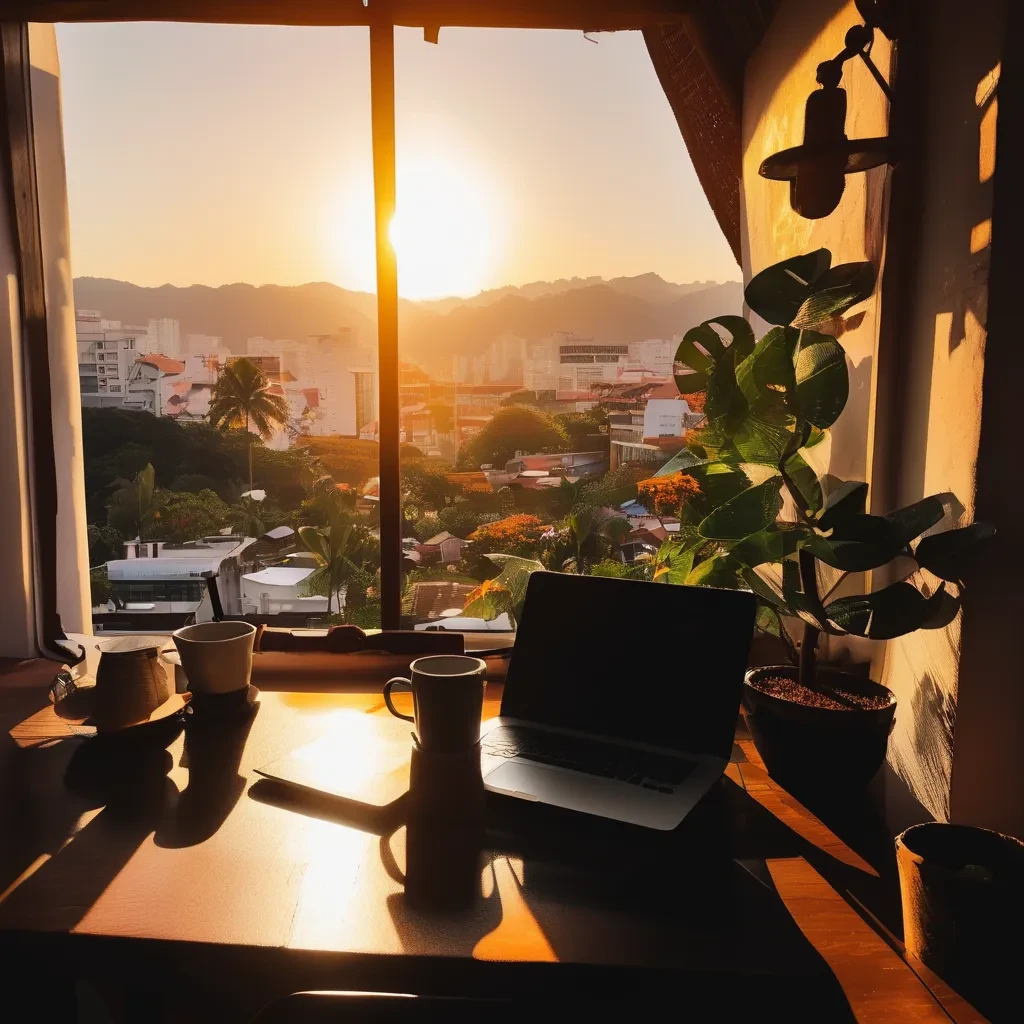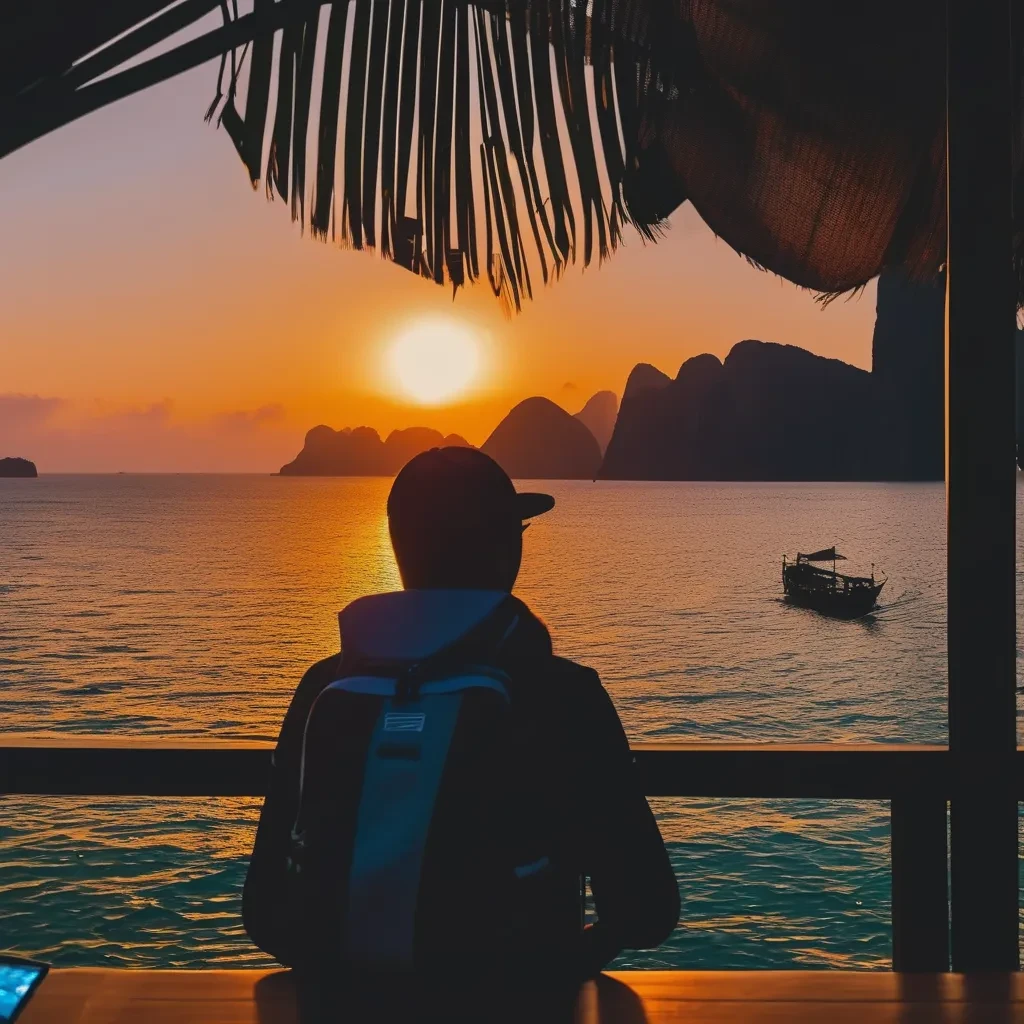Budgeting for long-term travel as a digital nomad is essential for enjoying the journey without financial stress. Many nomads struggle to manage their money while exploring new places. Travel experts say that planning and tracking expenses can make a big difference. This article provides practical tips to help anyone travel smartly and save money. Keep reading to learn how to budget effectively and make the most of your travel experiences.
Key Takeaway
1.Planning ahead is crucial for managing travel costs. 2.Tracking expenses helps avoid overspending and keeps budgets in check. 3.Using money-saving tips can enhance the travel experience without breaking the bank.
Understanding Your Budget
Before setting off on an exciting journey, understanding the budget is crucial. Knowing how much money is available helps digital nomads make smart choices. They should list all potential expenses, including accommodation, food, transport, and activities. This can be easily organized using a simple spreadsheet or a budgeting app. Seasoned nomads highlight that having a clear budget not only keeps spending in check but also allows travelers to enjoy their experiences without constantly worrying about money (1).
How to set budget for long term as digital nomads

Setting a budget for long-term travel as a digital nomad can feel overwhelming, but it doesn’t have to be. With the right approach, anyone can manage their finances while exploring the world. A well-planned budget not only helps in avoiding financial stress but also allows for greater freedom to enjoy new experiences. Here are some simple steps to help digital nomads create a budget that works for their adventurous lifestyle.
Calculate Monthly Income
Determine your monthly income by adding up earnings from remote work, freelance jobs, or any savings. This total gives a clear picture of how much money is available to spend each month. Knowing this figure is essential for making informed budget decisions, ensuring that all living expenses are covered while traveling, and allowing for a more enjoyable travel experience without financial worries (2).
List Fixed Expenses
Identify fixed expenses that need to be paid no matter where you are. Common examples include insurance premiums, subscription services, and ongoing bills such as phone or internet plans. Understanding these costs creates a solid foundation for your budget. By prioritizing these essential payments, you ensure that necessary expenses are covered before allocating money to other, more flexible spending categories.
Estimate Variable Expenses
Estimate variable expenses such as food, transportation, and entertainment, as these costs can change significantly based on your travel destination and personal lifestyle choices. Researching the cost of living in different areas helps in forming realistic estimates for each category. By understanding these potential expenses better, you can create a budget that prevents overspending and allows for a more enjoyable travel experience.
Create a Budget Plan
Use a budgeting app or a simple spreadsheet to craft a detailed budget plan. Start by inputting all sources of income, then categorize your expenses into fixed and variable costs. It’s also wise to include a section for unexpected costs, as these can pop up during travel. This plan helps visualize spending patterns, making it simpler to manage finances while exploring new destinations.
Track Spending
Keep track of daily spending to ensure the budget stays on track. Regularly updating the budget allows for real-time adjustments based on actual expenses, which is crucial for maintaining financial control. This ongoing practice helps identify spending patterns and highlights areas where cuts can be made if necessary. By staying vigilant, travelers can avoid overspending and maintain a balanced budget.
Adjust as Needed
Stay flexible with your budget to accommodate unexpected changes. If certain expenses turn out to be higher or lower than anticipated, adjust other spending categories to maintain balance. Being adaptable ensures that financial goals remain achievable while still allowing for enjoyable travel experiences. This flexible approach helps digital nomads stay on track throughout their journey, making it easier to navigate any financial surprises.
Affordable places to go
Finding affordable places to travel is essential for digital nomads looking to stretch their budgets while exploring the world. The right destination can offer not only low living costs but also vibrant cultures, delicious food, and a welcoming community. By choosing budget-friendly locations, nomads can enjoy rich experiences without financial strain, allowing them to focus on work and adventure. Here are some of the best affordable places to consider for your travels.
Portugal
Portugal is celebrated for its beautiful coastline and vibrant culture, making it an appealing destination for travelers. Cities like Lisbon and Porto provide a variety of inexpensive food options, including local markets and cafes. Affordable accommodation is widely available, along with numerous coworking spaces. With a lower cost of living than many Western European countries, Portugal stands out as a top choice for digital nomads (3).
Thailand
Thailand has become a favored destination for digital nomads, thanks to its lively culture and affordable living expenses. Cities such as Chiang Mai and Bangkok provide budget-friendly housing options, along with an array of delicious street food that suits any palate. The strong expat community fosters connections, while the abundance of cafes and coworking spaces creates ideal environments for productivity and collaboration.
Mexico
Mexico presents numerous affordable options for living and working as a digital nomad. Cities like Tulum, Playa del Carmen, and Mexico City blend rich culture, beautiful beaches, and mouthwatering cuisine. With a low cost of living, these locations make it easy to thrive. Many neighborhoods are welcoming to digital nomads, featuring a variety of coworking spaces for productive work environments.
Frequently Asked Question
What is budgeting for long-term travel as a digital nomad?
Budgeting for long-term travel as a digital nomad means planning how to manage your money while exploring new places over an extended period. It involves understanding your income, estimating expenses, and keeping track of what you spend. With a solid budget, you can enjoy your travels without constantly worrying about finances.
Why is budgeting important for digital nomads?
Budgeting is important for digital nomads because it helps ensure you have enough money to cover your living expenses while traveling. By creating a budget, you can avoid overspending and make informed choices about where to go and what to do. This way, you can enjoy your experiences without the stress of financial uncertainty.
How can I estimate my travel expenses?
To estimate your travel expenses, start by listing all potential costs, including accommodation, food, transportation, and activities. Research the cost of living in your chosen destinations to get a clearer idea of what to expect. Use online resources, blogs, or forums to gather information from other travelers. This will help you create a realistic budget that fits your lifestyle.
What are some tips for saving money while traveling?
There are several tips for saving money while traveling. First, consider cooking your meals instead of eating out. Second, use public transportation rather than taxis or rideshares. Third, travel during off-peak seasons to find lower prices on flights and accommodation. Finally, look for free or low-cost activities to enjoy in each destination, such as local parks or museums.
How can I track my spending while traveling?
Tracking your spending while traveling can be done easily with a budgeting app or a simple notebook. Write down every purchase you make, from meals to transportation. Reviewing your spending regularly helps you stay within your budget and adjust as needed. Keeping an eye on your expenses allows you to identify areas where you can cut back if necessary.
What should I do if I exceed my budget?
If you exceed your budget, don’t panic. Start by reviewing your spending to see where the extra costs came from. Identify areas where you can cut back or make adjustments to your budget. Consider temporarily limiting discretionary spending, like dining out or entertainment, until you get back on track. Flexibility is key, and it’s important to adapt your plans as needed.
How can I find affordable places to live while traveling?
To find affordable places to live while traveling, research different destinations and compare the cost of living. Look for areas that are known for being budget-friendly, such as Southeast Asia or Eastern Europe. Websites and travel blogs often provide insights on affordable accommodations, including hostels, guesthouses, or shared apartments. Additionally, consider staying with local hosts through home-sharing platforms for a more authentic experience at a lower cost.
Conclusion
Budgeting for long-term travel as a digital nomad is crucial for ensuring a stress-free experience throughout the journey. By gaining a clear understanding of expenses and diligently tracking spending, nomads can make informed decisions about their finances. Utilizing various money-saving tips allows for more enjoyable experiences without the burden of financial worries. Additionally, remaining flexible with the budget and seeking out helpful resources can lead to a successful and enriching travel adventure, making the most of every opportunity.
References
1.https://www.nurall.co/blog/how-to-budget-as-a-digital-nomad
2.https://brighttax.com/blog/budgeting-as-a-digital-nomad/
3.https://www.goabroad.com/articles/jobs-abroad/cheapest-places-for-digital-nomads
Related Articles
1.https://timecurvesoft.com/digital-nomad-budgeting-tips/
2.https://timecurvesoft.com/nomad-lifestyle-cost/
3.https://timecurvesoft.com/affordable-travel-for-digital-nomads/
Was this helpful?

I’m Robert C. L., an associate professor of management at Washington & Jefferson College. With a Ph.D. in industrial/organizational psychology from The Ohio State University, my passion lies in exploring the realms of creativity, innovation, and the evolving landscape of work. Delving into the digital frontier, my expertise extends to the world of digital nomads, remote work, and the liberating concept of travel freedom. I’m also an author of the book “Digital Nomads: In Search of Freedom, Community, and Meaningful Work in the New Economy” which is sold on Amazon. As a dedicated mind behind timecurvesoft.com, I’m committed to unraveling the dynamics of the digital workforce and sharing insights into the future of work. Join me on this journey of exploration and discovery!
